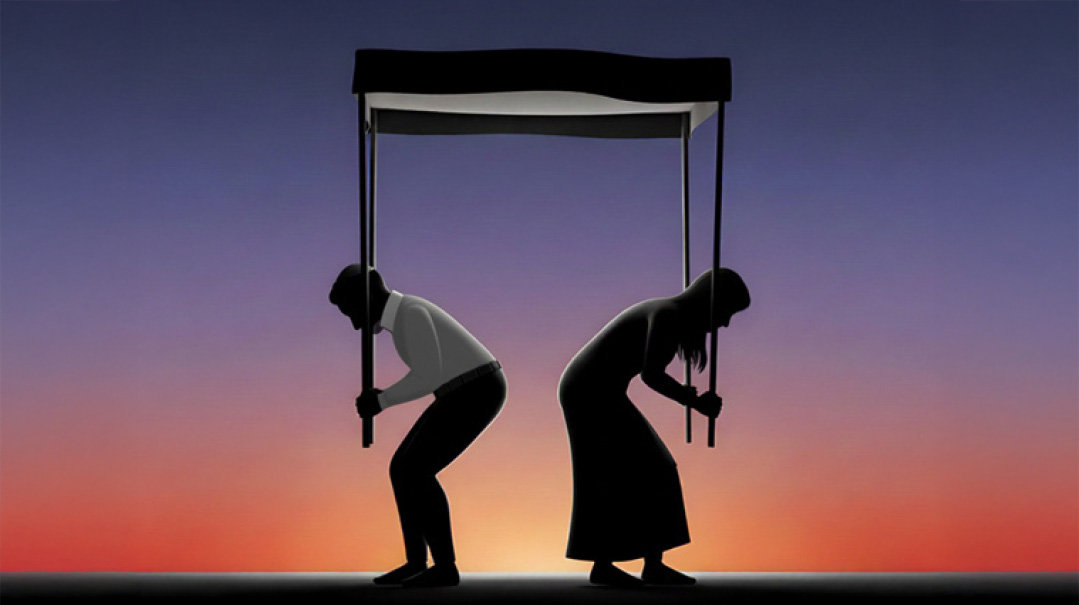Still Burning

"You only burn out if you’re pouring your energies into a job that’s not a good fit"
Years ago, I remember a colleague casually remarking, “We all know this is a burnout business. No one can do this for too long.”
When I shared that impression with a business coach, he challenged the assumption. Yes, there are weekly deadlines, and yes, there are complicated logistics, and yes, the readership’s needs and habits constantly change. But, he said, you only burn out if you’re pouring your energies into a job that’s not a good fit. If your job fits your talents and abilities, you may sometimes need a vacation, but you shouldn’t entirely lose the desire to keep going.
I wondered about that take over the years. I wonder about it still. Is the feeling of burnout due only to a mismatch between job and employee? Does the perfect job obviate the possibility of ever burning out? Or can even a born accountant or inspired artist reach a point where they’ve got nothing left to give?
There’s a publication I keep an eye on that does something interesting, sort of like professional musical chairs. They keep shifting their talent into new niches. I don’t know who initiates this — a wise manager or the writers themselves — but I have noticed the changes over the years. The food critic who became an opinion writer, the Russia expert who took over the Washington bureau. New assignments mean new sights to absorb, new sounds to decipher, new contacts to meet, new nuances to master — a professional challenge that keeps work fresh.
Apparently, it’s not an isolated phenomenon. Here’s a bio I stumbled across just this week, describing a writer at a different publication who “joined our reporting staff in 1976… has been a metro reporter, a columnist, a reviewer, and a feature writer…. He left the staff in 2009 to teach elementary school and returned to the staff in 2015…. He is a cyclist and a harmonica player, occasionally at the same time.”
How’s that for banishing burnout?
Sometimes I wonder if the formula would work for us too. Imagine what would happen if we took a frustrated news writer and asked him to edit Mishpacha Jr. for three months instead. Or if we challenged an opinion columnist to produce an inspirational fiction story with full character development, plot arc, and dialogue. Would that keep her fresh and sharp, and a safe distance from burnout?
Until we develop the scope, size, and flexibility to try that experiment, we won’t really know. In the meanwhile, how does our staff manage the long haul?
Some thrive on pressure and blossom through commitment. Their weekly duties — and their monthly bills — give them clarity and purpose. Give them a deadline and word count or an empty grid, and they get going. (We all are those people some of the time.)
A few of our contributors have moved up into editing or professional development, training newer writers in skills they’ve mastered over the years.
Some have found their own version of the simultaneous cycling and harmonica-playing enjoyed by that veteran reporter-turned teacher-turned reporter again. Hobbies, outside projects, self-development — they counter the relentlessness of the weekly deadlines with pursuits that are an escape or an enrichment, or both.
Some don’t manage. They decide at some point that they’ve exhausted their reserves, they’ve given all they can, and it’s time to try something new. (As much as we mourn their decisions for the magazine’s sake, we also salute these contributors for finding clarity and courage to make the right move for themselves, their families, and their futures.)
But not always does exhaustion equal depletion. When we use dramatic terminology (and writers can be very dramatic), the language tends to magnify our emotions. Consider “the kids are being challenging” versus “the kids are being impossible!” Or “we’re going to be ready a little later than usual this year” versus “this house will never be ready for Pesach!”
If you’ve done this long enough, you’ve probably learned that burnout is part of a cycle, that there’s at least one point during the year when you’re sure you’ve scraped the absolute bottom of your creative capacity. And you also know that you can get through it easier if you call it something else. Something less scorched, less final. “Low season” maybe. Or “not my most inspired time.”
So you keep showing up, you keep the material moving, you follow the process, even though you’re not sensing any magic. And then one day the words are flowing and the ideas are coming and you realize that the creative drive to produce, to improve, to surprise and inspire has come back.
—Shoshana Friedman, Managing Editor
Originally featured in Mishpacha, Issue 850.
Oops! We could not locate your form.







